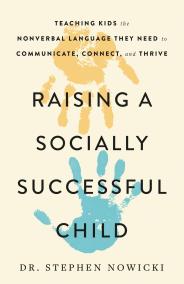Promotion
Use code MOM24 for 20% off site wide + free shipping over $45
Reading Faces
Window To The Soul?
Contributors
Formats and Prices
Price
$49.00Format
Format:
Trade Paperback $49.00This item is a preorder. Your payment method will be charged immediately, and the product is expected to ship on or around June 6, 1997. This date is subject to change due to shipping delays beyond our control.
Also available from:
Do we read character in faces? What information do faces actually provide? Why do we associate certain facial qualities with particular character traits? What are the social and psychological consequences of reading character in faces? Zebrowitz unmasks the face and provides the first systematic, scientific account of our tendency to judge people by their appearance. Offering an in-depth analysis of two appearance qualities that influence our impressions of others—“babyfaceness” and “attractiveness”—and an account of these impressions, Zebrowitz has written an accessible and valuable book for professionals and general readers alike.The assumption that people's faces provide a window to their inner nature has a long and distinguished history, eloquently expressed in the works of ancient philosophers, like Aristotle, and great writers, like Shakespeare. Zebrowitz examines this assumption, focusing on four central points. She shows that facial appearance, particularly babyfaceness and attractiveness, has a strong impact on how we perceive an individual's character traits and on social outcomes in the workplace, in the criminal justice system, and in other settings. She proposes that facial stereotypes derive from evolutionarily adaptive reactions to useful information that faces can provide. She assesses the accuracy of facial stereotypes in light of plausible links between appearance and character. Finally, Zebrowitz suggests ways to counteract the consequences of reading faces.
Genre:
- On Sale
- Jun 6, 1997
- Page Count
- 288 pages
- Publisher
- Avalon Publishing
- ISBN-13
- 9780813327471
Newsletter Signup
By clicking ‘Sign Up,’ I acknowledge that I have read and agree to Hachette Book Group’s Privacy Policy and Terms of Use







